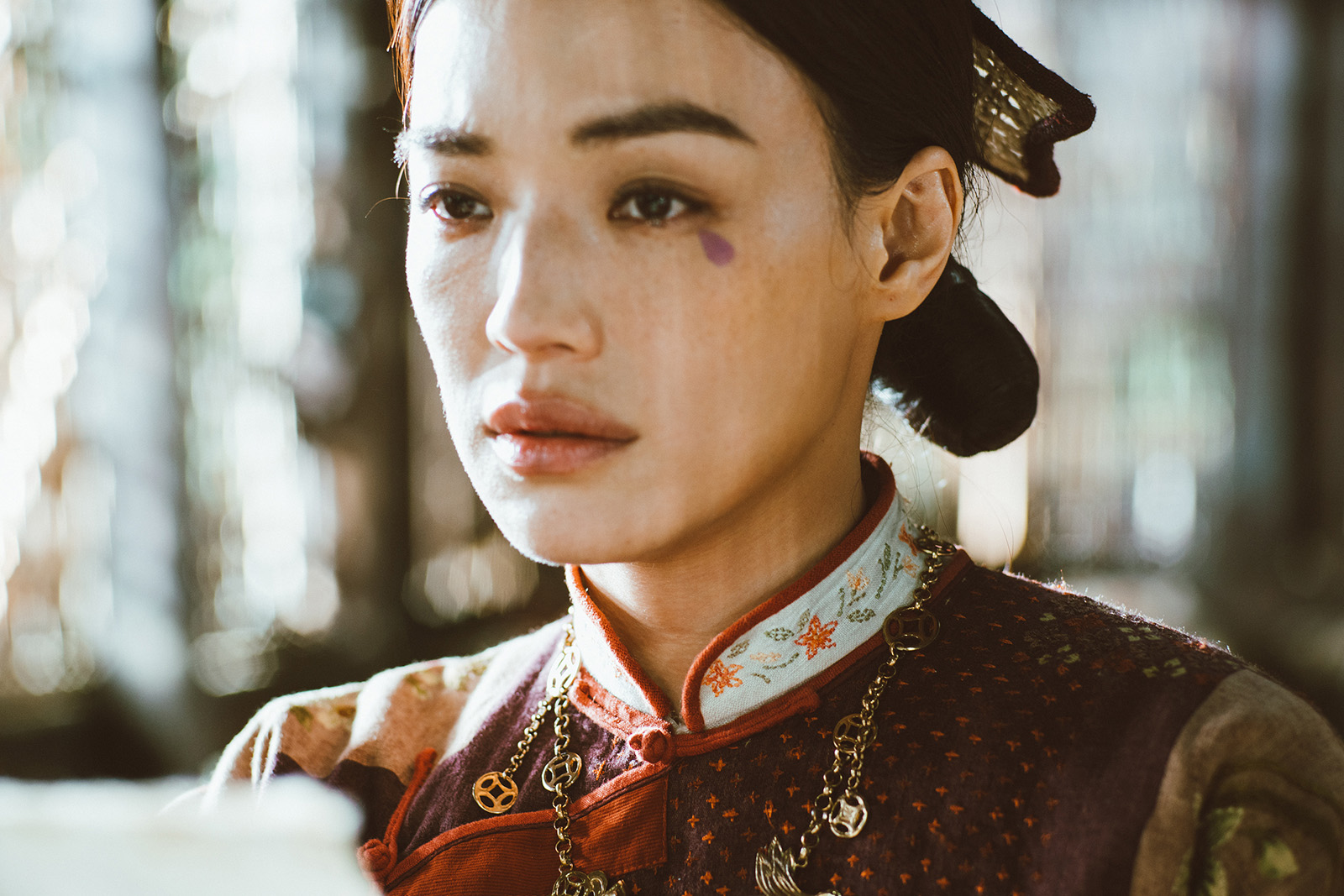Westwood theater offers month-long screenings of Taiwanese films

The UCLA Film and Television Archive partnered with the Westwood-based Taiwan Academy to create the “What Time is it There? Taiwanese Film Biennial,” which is free to UCLA students. The Taiwanese Film Biennial will feature films such as “Ice Poison” and “Super Citizen Ko.” (Courtesy of UCLA Film & Television Archive)
By Lisa Aubry
Oct. 22, 2017 10:00 p.m.
Mei-Juin Chen and her friend in college were rescued from the side of the road by a tattooed man in a red Cadillac.
Twenty-five years later, the pair made a feature film titled “The Gangster’s Daughter,” which was inspired by the encounter and was the first screened movie at the “What Time is it There? Taiwanese Film Biennial.”
The UCLA Film and Television Archive partnered with the Westwood-based cultural organization Taiwan Academy to create the “What Time is it There? Taiwanese Film Biennial.” The series launched Friday with the screening of “The Gangster’s Daughter,” and will end Nov. 19. The biennial event hosted at the Billy Wilder Theater in Westwood will screen 11 contemporary Taiwanese films and three restored Taiwanese classics from genres including melodrama and martial arts action films. The selection of films aims to highlight contemporary emerging Taiwanese cinema and culture for American audiences.
Robert Chi, a co-curator of the event, said although there are some world-renowned Taiwanese filmmakers and movies, the curators chose to display lesser-known contemporary films in order to provide a snapshot of modern Taiwan. Some of the recent films employ low-budget filmmaking means to offer insight into the Taiwanese lifestyle, such as casting nonactors to play their own roles from real life.
“We decided to steer clear of the well-known filmmakers,” Chi said. “We wanted to focus on giving people a fresh new look into Taiwanese cinema, especially what’s going on there today.”
“The Village of No Return,” screening Nov. 11, is a costume drama comedy set in a fictional Chinese village. It was designed as a commercial product for the Lunar New Year season when the Taiwanese public celebrates and frequents movie theaters more often than usual.
Co-curator Paul Malcolm said “The Village of No Return” resembles a blockbuster comedy but still presents authentic aspects of Taiwanese culture and history.
“It’s deeply rooted in very specific Taiwanese mythology, Chinese history and folklore,” Malcolm said. “It’s the familiar and the different at the same time.”
Alongside commercial comedies, the event will also present art house films such as “City of Jade” and “Ice Poison,” which blend fiction with documentary styles to comment on socio-political impacts on marginalized people’s lives. In “Ice Poison,” a farmer’s failing crops prompt his son to become a deliveryman, but his son soon finds himself struggling with meth dealing and drug abuse.
Malcolm said screening restored films helps provide context for the newer films such as “Ice Poison.” In the restored 1995 film “Super Citizen Ko,” a Taiwanese political prisoner deals with his release into the unfamiliar atmosphere of a modern, liberalized Taiwan.
“We are showing the diversity of contemporary Taiwanese film through all these different kinds of films, and even (showing) that Taiwanese cinema always had this wide array of types of filmmaking practices,” Malcolm said. “There really is something for everybody here.”
Films like “The Gangster’s Daughter” explore the concept of familial relationships in a story following the development of a father-daughter relationship between Shaowu, a teenage girl originally from a rural island, and her father, one of the head mobsters in Taiwan’s capital city of Taipei. Chen, who was present at the film’s screening Friday, said she aimed to create a natural and realistic representation of Taiwan and its people.
“I was born and raised in Taiwan, so this is like a look from the outside by an insider view of Taiwan,” Chen said. “I try to show the architecture, the culture, people’s relationships, the language and the nature of Taiwan.”
Chen’s inspiration for the film stems from a personal experience she had with her friend and screenwriter. In college, the pair went on a summer road trip to southern Taiwan, where their motorcycle broke down in the mountains. They were preparing to spend the night by the road when a red Cadillac pulled up and a window was rolled down to reveal a man.
After entering the Cadillac, Chen said she noticed the man’s daughter in the passenger seat, the inspiration for the movie which harks back to watching the daughter and father enjoy each other’s company. Addressing such coming-of-age themes can be a universal concept, Chen said, and viewers do not need to belong to Taiwanese culture to understand them.
Students who come to screenings will also gain a fuller understanding of the history and the social context of cinema in Taiwan, Chi said. Viewers rarely get to see Taiwanese movies in a theater setting, since many people choose to watch television and movies online.
In addition to experiencing an immersive theater atmosphere, Malcolm said gaining exposure to diverse film styles and story lines will prompt students and other movie-goers to experience a country they have never been to, or perhaps reconnect with the current events of the country they are from.
“On some level, each one of these films is looking at or trying to understand Taiwanese national identity, and at the same time they are telling the stories of individuals,” Malcolm said.


